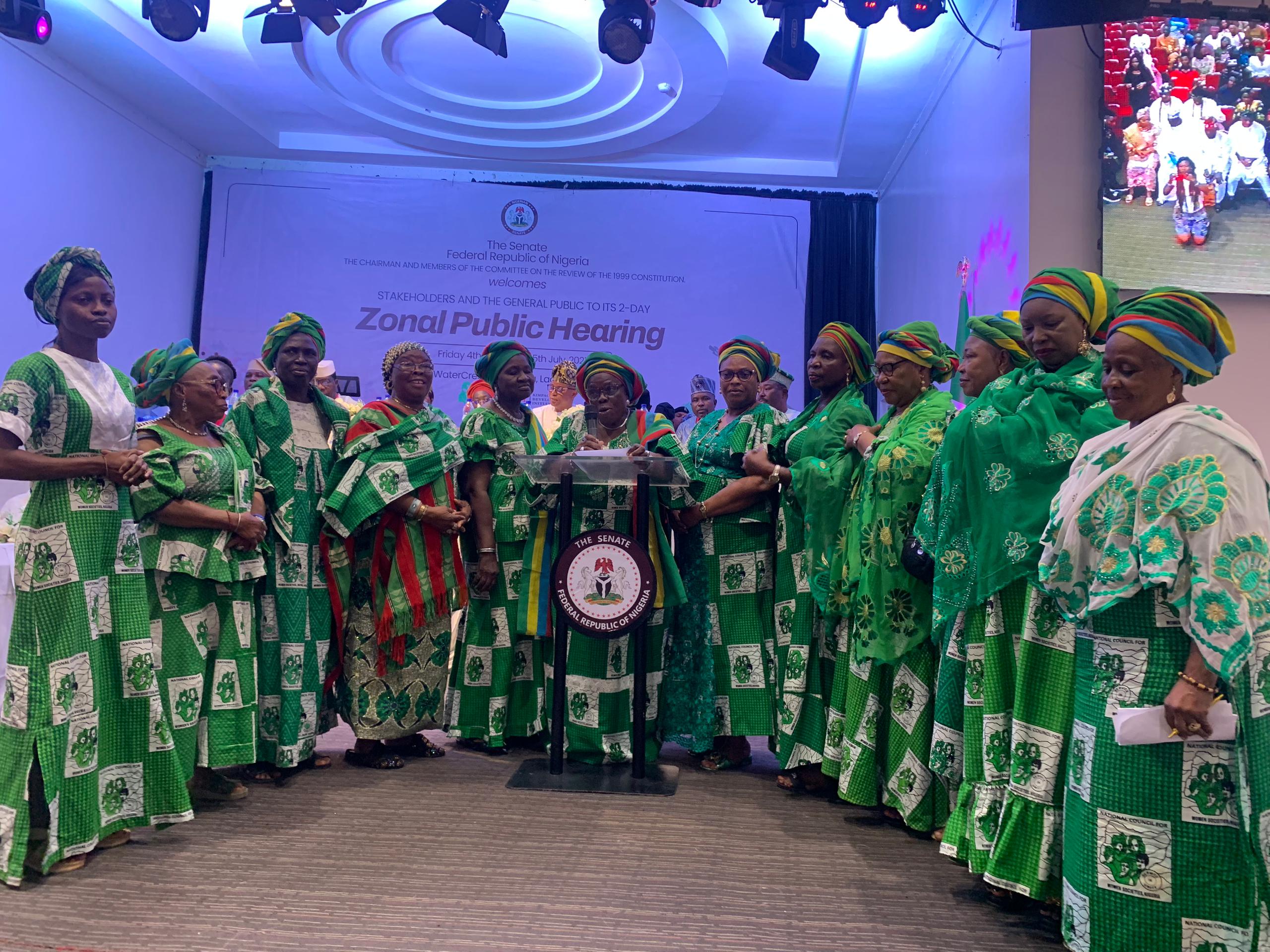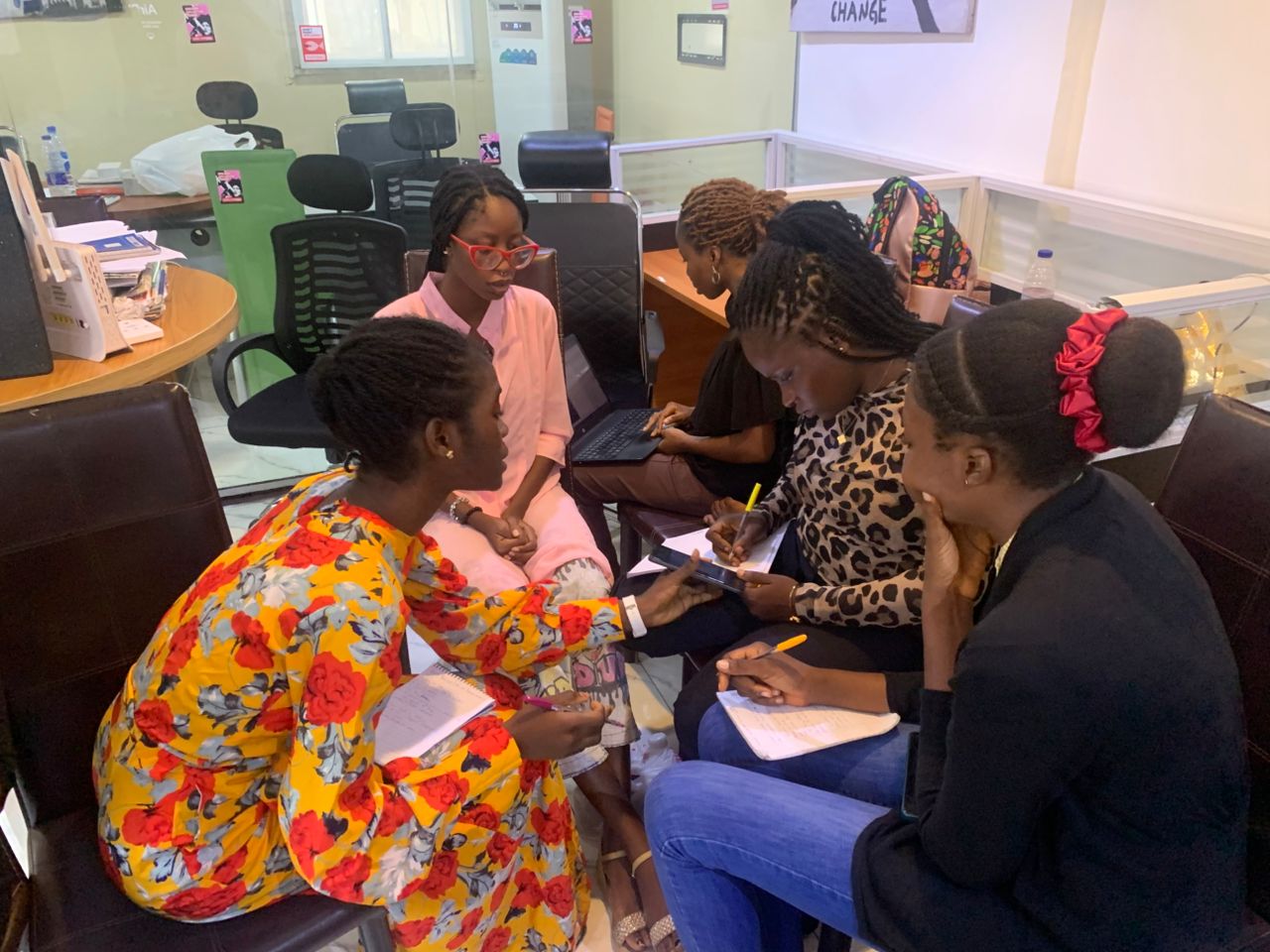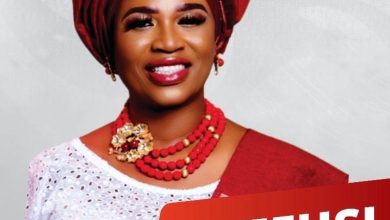
|
Getting your Trinity Audio player ready...
|
Women’s groups, including the National Council of Women’s Societies (NCWS) and other stakeholders, have advocated for constitutional reforms promoting women’s political inclusion in the 1999 Constitution review hearing.
The Senate Committee organised the hearing for the South-West Zone at the Watercress Hotel, Ikeja, on July 4 and 5, 2024. Participants included senators, traditional rulers, government officials, labour leaders, and civil society organisations. The event was part of a nationwide public hearing conducted simultaneously in Nigeria’s six geopolitical zones: Lagos, Enugu, Kano, Jos, Kwara, and Akwa Ibom.
A central demand at the hearing was the Reserved Seats Bill for Women, a proposed constitutional amendment seeking to guarantee two additional seats for women in each of Nigeria’s 36 State Houses of Assembly.
Speaking at the event on behalf of women across the 36 states and the Federal Capital Territory, the President of the National Council of Women Societies (NCWS), Alhaja Ajao Memunat, strongly advocated for the passage of the Special Reserved Seats Bill.
She reiterated NCWS’s call for the immediate passage of the bill, describing it as a vital step toward equitable governance in Nigeria. According to her, the proposed legislation, which seeks to expand political space for women, provides a framework for inclusive and balanced democracy, especially in regions affected by insecurity and displacement.
“Women represent more than 49% of Nigeria’s population, yet we hold less than 5% of seats in the National Assembly. This underrepresentation undermines development, stability, and the ability of leaders to respond effectively to the needs of the population.” She stated. “It is a bill that will open the doors for capable, committed Nigerian women to serve their country at all levels.”
The association highlighted women’s crucial role in sustaining informal economies, mediating conflicts, and supporting recovery efforts, yet noted that their voices remain marginalised in governance. They emphasised global evidence showing that inclusive leadership leads to stronger institutions and better national outcomes.
The NCWS urged the National Assembly to recognise women’s peacebuilding efforts and ensure that their rights are reflected in the revised constitution. They also pledged to work with all relevant stakeholders to implement the bill.
“All we are saying is: Give us today for a better, stronger Nigeria tomorrow.”
Speaking to Naija Feminists Media (NFM), the NCWS Lagos State Secretary, Rebecca Pyne, reaffirmed their commitment, stating,
“We are here today to represent women on the Special Reserved Seat as part of the constitutional review process.”
In a passionate plea for inclusion, ActionAid Nigeria called for 35% representation for women in legislative bodies and demanded constitutional guarantees for youth inclusion. Representing the organisation, Debora Obiri stated,
“We propose 35% representation for women in both the National Assembly and State Houses of Assembly, in line with the National Gender Policy.” She added: “We are also proposing a 30% inclusion for youth. We have the energy. We are young. You say we are the leaders of tomorrow. We have grown, let us start leading now.”
Speaking to NFM, Deborah said Action Aid’s presence ensures that no woman is left behind and that the voices of youth are represented.
The group proposed amendments to Section 49 of the Constitution, urging that 30% of party lists under the proposed proportional representation system be reserved for young people, with this provision reflected in the revised Constitution.
The Senate reaffirmed its goal of ensuring inclusive leadership and political representation for all historically marginalised Nigerian women and assured that all groups’ concerns would be considered.






